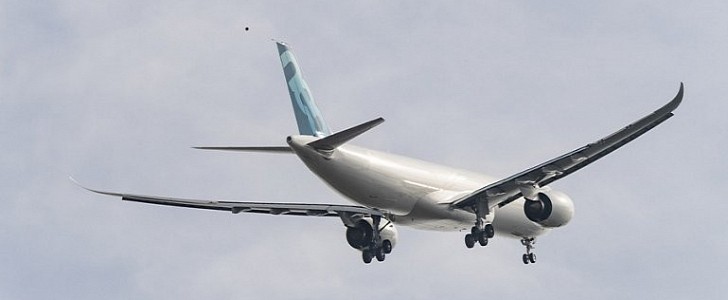If four-wheeled and two-wheeled vehicles are well on their way to replacing standard engines with electric motors, airplanes and ships still have to rely mostly on fuel, which moves the focus on sustainable alternatives to standard fuel. In order to support and accelerate this transition, the U.S. Department of Energy (DOE) announced a significant investment in more than 20 innovative projects.
DOE is collaborating with the U.S. Department of Transportation and the U.S. Department of Agriculture to increase the production of sustainable aviation fuel (SAF), while also cutting costs, in order to accelerate its large-scale use in aviation. The result of this collaboration has an interesting name: the Sustainable Aviation Fuel Grand Challenge.
More than $64 million will be awarded to the 22 projects that have been selected for the Challenge. Each of these projects is developing technologies or processes that help produce low-cost, sustainable biofuel.
The DOE program is divided into five main categories, including biotechnologies, renewable natural gas, clean cellulosic sugars for conversion, biomass conversion and wood heaters. Each area will focus on research, development and demonstration of the final technology or process.
This Grand Challenge’s goal is an ambitious one and that is to reach the capacity of supplying enough SAF to cover 100% of aviation fuel demands, by 2050. Plus, it plans to cut greenhouse gas emissions throughout the life cycle by at least 50%, compared to conventional fuel.
It’s not impossible, since DOE statistics also show that there are sufficient resources for that. For example, U.S. forestry and agricultural residues are a great source of biomass for biofuel production, enough to replace over 75% of conventional jet fuel consumption. The next step is developing the adequate technologies that can turn these resources into SAF, effectively, fast and at a low cost.
DOE’s Bioenergy Technologies Office (BETO) is administering these investments, meant to take SAF production to the next level. You can find the complete list of the selected projects and their area of expertise here.
More than $64 million will be awarded to the 22 projects that have been selected for the Challenge. Each of these projects is developing technologies or processes that help produce low-cost, sustainable biofuel.
The DOE program is divided into five main categories, including biotechnologies, renewable natural gas, clean cellulosic sugars for conversion, biomass conversion and wood heaters. Each area will focus on research, development and demonstration of the final technology or process.
This Grand Challenge’s goal is an ambitious one and that is to reach the capacity of supplying enough SAF to cover 100% of aviation fuel demands, by 2050. Plus, it plans to cut greenhouse gas emissions throughout the life cycle by at least 50%, compared to conventional fuel.
It’s not impossible, since DOE statistics also show that there are sufficient resources for that. For example, U.S. forestry and agricultural residues are a great source of biomass for biofuel production, enough to replace over 75% of conventional jet fuel consumption. The next step is developing the adequate technologies that can turn these resources into SAF, effectively, fast and at a low cost.
DOE’s Bioenergy Technologies Office (BETO) is administering these investments, meant to take SAF production to the next level. You can find the complete list of the selected projects and their area of expertise here.











